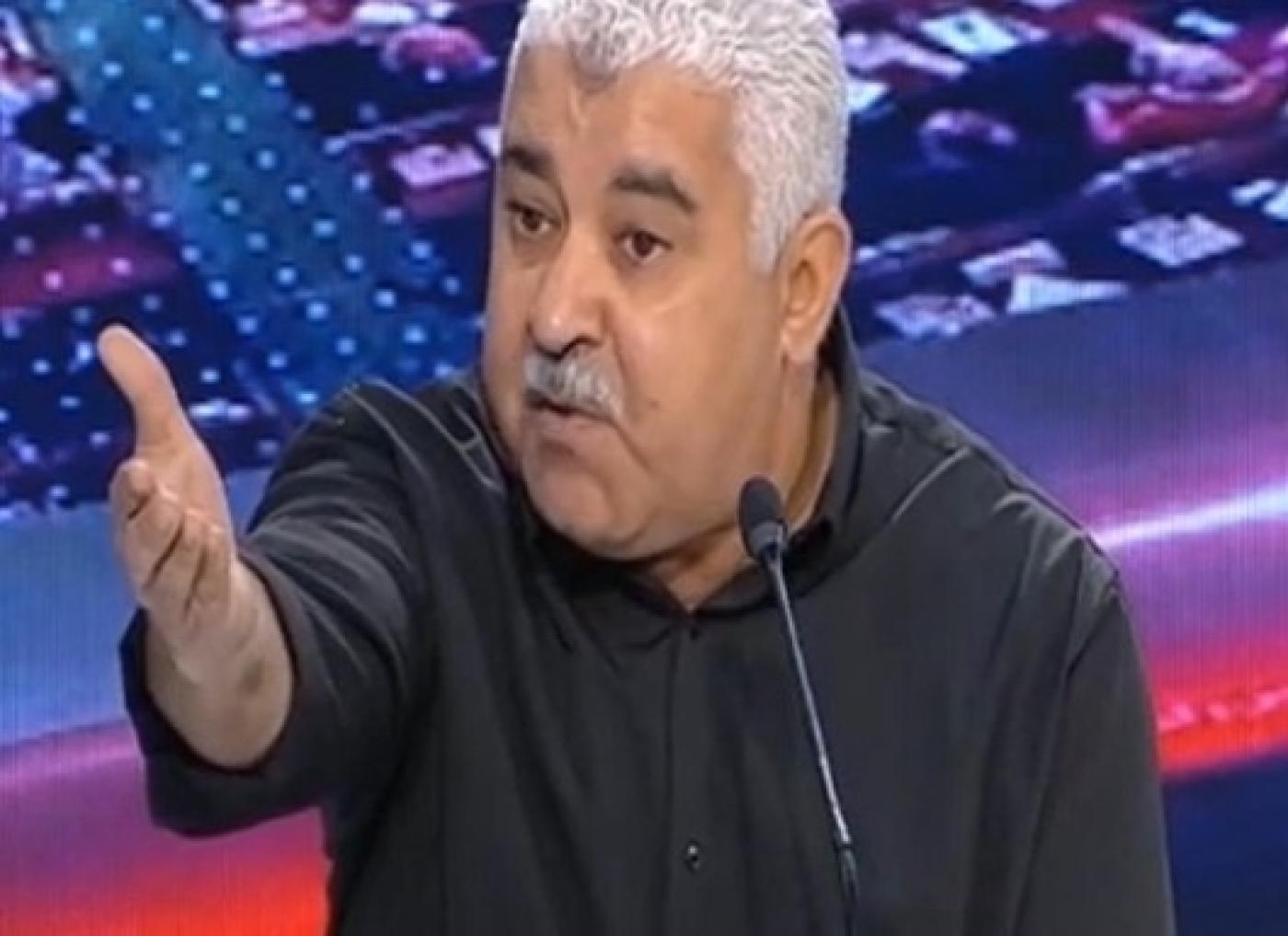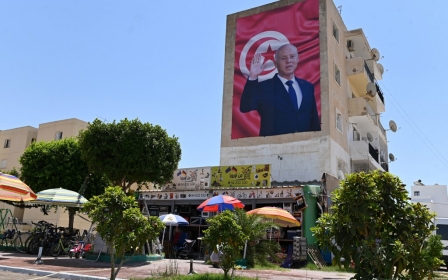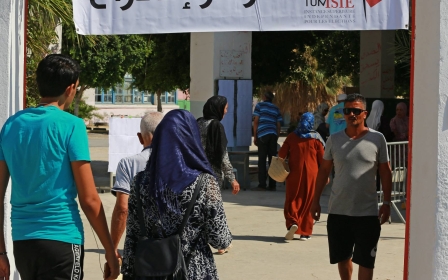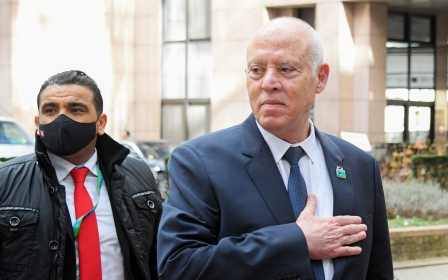Tunisia: Journalist Salah Attia sent to prison after speaking out on coup events

A Tunisian military tribunal sentenced journalist Salah Attia to three months in jail on Tuesday, despite human rights organisations calling the trial a "travesty of justice".
Attia, the editor-in-chief of local independent news website Al-Ray al-Jadid, had been in jail since June, following remarks he made to Al Jazeera that the powerful workers' union (UGTT) was in regular contact with the military and President Kais Saied.
In exposing an alleged link between the UGTT, the president's office and the military, Attia, also drew attention to how Saied successfully implemented the coup.
The military court found him guilty of "undermining state security and the army's morale". Attia faced a potential seven-year sentence for these charges.
New MEE newsletter: Jerusalem Dispatch
Sign up to get the latest insights and analysis on Israel-Palestine, alongside Turkey Unpacked and other MEE newsletters
On Monday, Amnesty International condemned the military trial in a statement calling for the charges to be dismissed.
"While President Saied has repeatedly vowed to uphold human rights, including freedom of expression, authorities' persecution of Salah Attia sends a message to journalists that reporting on the president and state institutions may carry risks. Authorities must immediately release Salah Attia and drop the bogus charges against him."
Since taking power in a coup on 25 July 2021, Saied has ruled by decree, with critics describing his actions as undermining the democratic gains made by Tunisia after the 2011 Arab Spring uprising that drove longtime ruler Zine El Abidine Ben Ali from power.
"Tunisian authorities are perfectly free to dispute and counter what media report about them without arresting and prosecuting journalists. In any case, no civilian should face trial before Tunisia's military courts. This travesty of justice must stop," said Amna Guellali, Amnesty International's deputy regional director for the Middle East and North Africa.
Amnesty International has also identified at least 50 travel bans targeting the country's judges, civil servants, businessmen and parliamentarians.
Authoritarian drift
On 25 July, Saied held a constitutional referendum that consolidated his grip over the country. Around nine million Tunisians were eligible to vote; however, the final turnout was around 30 percent.
The new constitution was written in just four weeks, by a group of hand-picked jurists and law professors. It effectively ended the country's hybrid parliamentary-presidential system in favour of a presidential system, which now gives Saied the power to appoint the prime minister and other cabinet ministers, unilaterally dissolve parliament, and appoint judges.
The new constitution also removes democratic guard-rails that could remove the president, something which the previous document allowed for if there was a "blatant violation of the constitution".
While there is still a two-term limit on the presidency, the 2014 provision that stipulated the constitution could not be amended to increase the number of terms has been removed.
The International Commission of Jurists has condemned the 2022 constitutional referendum process as "fundamentally flawed" and "devoid of any legal basis, democratic legitimacy, inclusivity, accountability and transparency".
Tunisia's political turmoil has been compounded by a crumbling economy seeking relief from the International Monetary Fund, high food prices and rocketing inflation.
Middle East Eye delivers independent and unrivalled coverage and analysis of the Middle East, North Africa and beyond. To learn more about republishing this content and the associated fees, please fill out this form. More about MEE can be found here.




